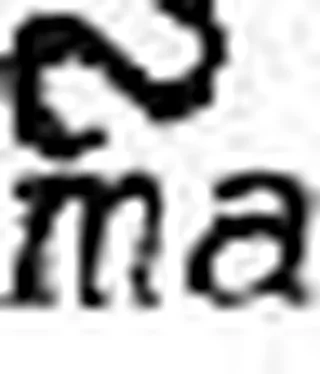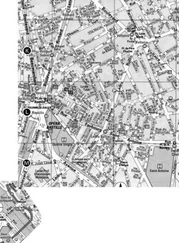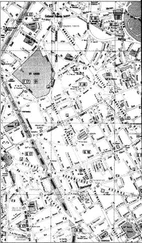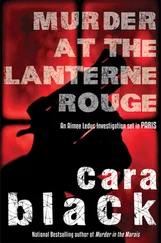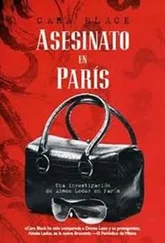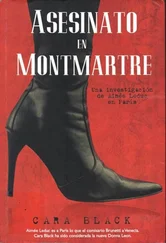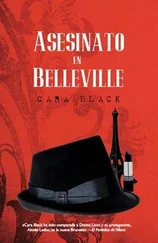Miles Davis, her bichon frisée puppy, greeted her with a wet nose and wagging tail. At least he was fine. She hit the switch of her hall chandelier and fiddled with the radiator. The only response was a dribble of heat and a sputtering, angry knock in the pipes.
She gasped at the mess they’d made, though the RG had a method to their ransacking. Neat piles of papers and her clothing sat in the middle of the rooms. Her computer lay untouched, thank God, but her armoires hung open. Drawers in several old chests were pulled out, too. Did they think she’d stash the jade in her apartment and leave it?
Thinking of Fabien Regnier going through her things made her sick. They’d dirtied everything by their presence.
Who was the black-leather-clad figure on the motorcycle? Was he, too, with the RG? And where did the hawk-nosed man from the Place Vendôme, who’d witnessed her father’s death, fit in? What did this imply?
She forked the last of the horsemeat into Miles Davis’s chipped Limoges bowl. These days, a boucherie chevaline with the gold horse head above it, the sign of a horsemeat butcher, was harder to find in the quartier than a child without Nintendo.
She kicked off her boots, hung up her damp coat, reached in the pocket for a cigarette and remembered she’d quit. Merde! Papers crinkled. Her hand held something; the envelope she’d meant to give Baret. She remembered how he’d clutched her coat . . . what had he said . . . Nadège, Sophie? She slit open the envelope Linh had given her. Inside lay a cashier’s check for fifty thousand francs.
Linh had been buying the jade! Stolen jade? If Linh had asked her to make the exchange, because she was under surveillance . . . well, now the RG were watching her .
She shivered and pulled on the ski parka she wore when the heater refused to cooperate. So far, it had happened every night this week. But the chill in her bones wasn’t just from the cold.
She pushed aside the tool box. If only the contractor would sheetrock the rest of the kitchen wall. Two weeks and she’d only seen him once. And then she got to work, putting away her things, cleaning up the mess the RG left. A quick, cursory job. They must have been watching her apartment, known she hadn’t returned. After an hour, her arm throbbed but she’d put away most of the piles.
She looked inside her small box of a refrigerator. Nothing except an expensive eye cream the woman at the Samaritaine cosmetics counter assured her performed wonders. So far, she hadn’t noticed a difference. A runny Reblochon and pain rus-tique waited on the counter. But her appetite had disappeared. She hit the red blinking message-machine button. One message.
“Aimée . . . I thought you’d be home . . .” Guy’s voice said. Unsure and annoyed.
A click, and he’d hung up.
Her heart sank. Regnier and the RG had heard this, too.
“Looks like you and me, Miles, and the brick.”
She turned on the oven and stuck a brick inside to warm. In an hour, she’d put the hot brick in her bed and keep toasty all night: a trick her grandfather had learned in the war when charcoal was scarce.
She climbed into bed, weary, her arm aching, but she couldn’t stop the thoughts spinning in her head.
Endlessly.
Aimée pushed the duvet down. She slipped on wool socks and an old bathrobe of her father’s. Below, blue barge lights on the Seine reflected off the glistening wet stone Pont Marie. Pigeons, nesting in the pear tree below, in the courtyard, cooed.
In the dim salon, she powered up her laptop. Who was Thadée Baret? All she knew was he had possessed stolen jade— stolen from whom she didn’t know—and needed money. One didn’t go out in raw November weather without a coat unless to dash down to a nearby tabac or a café below one’s apartment. Certainly not with a backpack of valuable jade. So she figured he had lived close by the place where he had died.
Start with the obvious, her father had always said. Sometimes it worked and saved time. She searched in the phone book. No listing.
Online, she hacked into the standard financial databanks, a practice she and René performed routinely to find someone’s credit history. There was no credit card issued in his name. Talk about flying below the radar. Bank account searches required more time, so she put that aside.
He’d looked arty, had an intello air, a former junkie by the old marks on his arm . . . was he a gauche caviar who’d squandered the family wealth? Searching further, she checked university registrations for the past fifteen years. Ecole nationale d’ad-ministration, then of Political Science. Nothing. Not even at the Ecole des Beaux-arts.
If he needed money . . . drugs? But his tracks were old. Gambling? Wait a minute, she’d forgotten something. Paper had rustled in her pocket . . . why hadn’t she checked it? She ran, her wool socks padding softly on the floor, to the coatrack in her hallway, and emptied her pockets. Besides the envelope, there was a half of a torn PMU— Pari mutuel urbain — horse race betting slip. She remembered the sounds accompanying his phone call. Like a café- tabac in the background, where bets were taken. It must have been a local place, where he awaited her call.
She’d investigate tomorrow. After she retrieved the jade from Guy’s office. It would be a place to start. Getting the RG off her back was a bigger problem.
In her bedroom, she sat crosslegged and put the small jade disk on the window ledge. It glowed in the light. Ethereal. A circle of beauty. She closed her eyes, tried to empty her mind. Concentrate. Inhaling, exhaling, counting her breaths.
But the images of the jade animals floated above her, as if they were pulling her back to consciousness. She saw the mocking smile of the jade monkey, then the hawk-nosed man. And felt the stinging and smarting of her stitches.
She rubbed her eyes. The corners of her vision blurred. Nervously, she washed down a pill with bottled Vichy water.
Her dreams echoed with the insistent cawing of the crows nesting over the boulangerie where Baret had been shot— loud and grating. Their flapping, glossy, obsidian-black wings tried to tell her something. Dawn found her on the floor, shivering.
Tuesday Evening
HERVÉ GASSOT DIPPED HIS fingers in the icy holy water font of the nineteenth-century church. He stuck his cap in his wool overcoat pocket, smoothed down his fringe of white hair and sat in the worn pew. He ignored the tsk, tsk of an old woman woman bent in prayer as he lifted his artificial leg onto the kneeler. His prosthesis, stiff on the cold unforgiving stone floor, had rebelled.
Candles sputtered by the saints’ statues, their scent of burning wax as familiar as the low drone of prayer from the confessionals. He bowed his head and prayed for his stupid camarade , Albert, from his old regiment. Albert, who’d earned the croix de guerre at Dien Bien Phu, had gone to the clinique , between the plumber’s and Communist party office, for a routine cardiogram and ended up on a cold slab in the morgue.
The priest made the sign of the cross, ending the evening rosary. Gassot stood and went to shake hands with the younger priest who wore a clerical collar and jogging shoes as he passed out the liturgy calendar.
“ Bonsoir, mon père, ” he said.
“Don’t forget the sing-along liturgy tomorrow, mon fils, ” the priest said.
But Gassot knew neither he, nor the church congregation, all over sixty, would make that a priority. Out in the vestibule, the white marble gleamed in the low light.
On the church steps, Picq, one of the few left from his regiment in Indochina, sidled up next to Gassot, lighting two unfiltered Gitanes. He offered one to Gassot, who accepted, inhaled the woody tobacco, and exhaled into the night air.
Читать дальше
